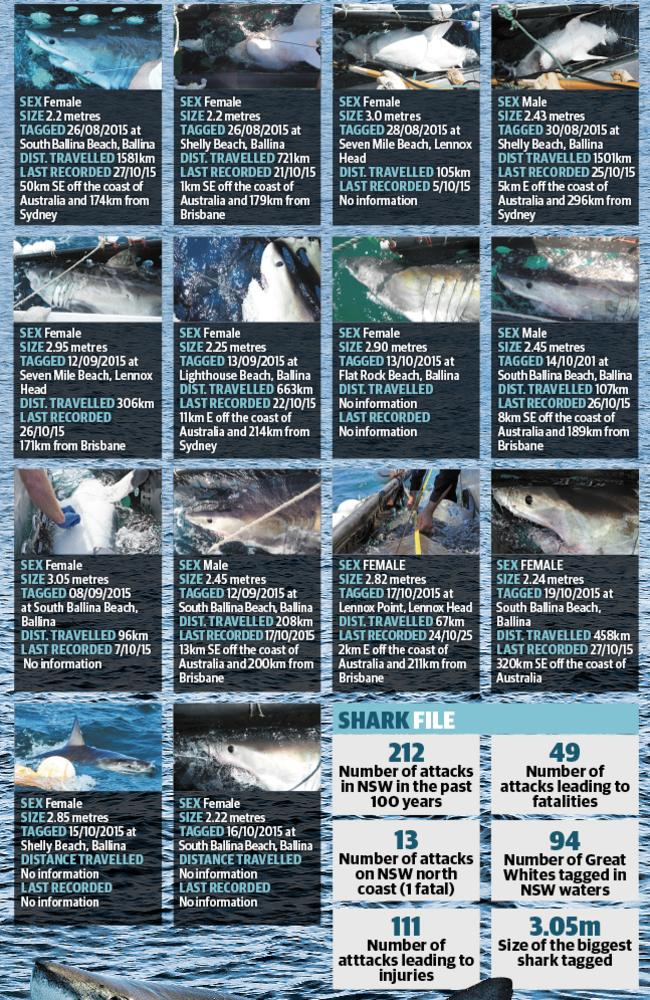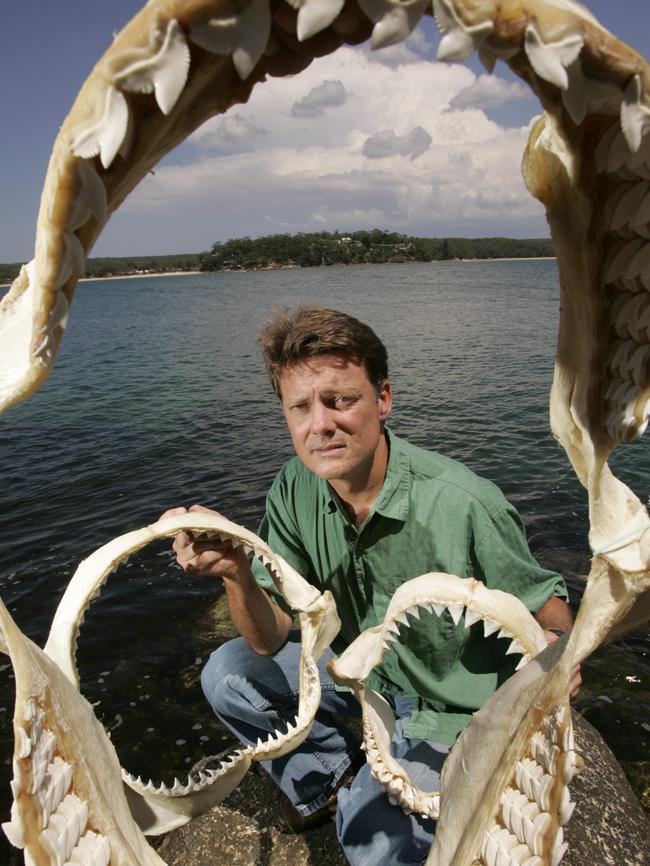Australia’s top shark scientist urges swimmers to wear shark repellent to help prevent attacks
AUSTRALIA’s top shark scientist says swimmers and surfers worried about sharks should wear an electronic repellent and, if attacked, fight back Mick Fanning-style.
AUSTRALIA’s top shark scientist says swimmers and surfers worried about sharks should wear an electronic repellent and, if attacked, fight back Mick Fanning-style.
The advice from NSW Department of Primary Industries shark researcher Dr Vic Peddemors comes as the government steps up its shark tagging program, with the next expedition set for November 9.
Sonar and acoustic tags have so far been attached to 94 great white sharks — 80 by the CSIRO — with the data allowing real-time tracking of the species.
But Dr Peddemors said the community also had to take responsibility for their own safety.
The South African native, who thinks sharks get “a bad rap”, said worried swimmers and surfers should be wearing electronic shark repellents, which he believes work.
In the case of surfers, the devices should also be used on the board.
Dr Peddemors, whose intricate knowledge of sharks has stopped him swimming in of Sydney Harbour, says being in a group was also advisable, with sharks mistaking lone swimmers for “a sick seal”.
“You can’t expect the government to do everything. If nervous, you have to take some responsibility,” he said.
“I think the only answer we can suggest are these electronic shark repelling devices, which have had positive results in three independent trials. If you are nervous, you should look at these devices.”

Dr Peddemors said the devices, which can be worn around the ankle or inserted in to a surfboard, cocoon swimmers in an electronic field, which sharks avoid.
But the avid surfer, who is keen to chat to Fanning about his shark battle, said the one sure-fire way to respond during an attack was to poke the shark in the eye.
“We know the eyes are sensitive. Whites roll them back before an attack. So definitely go for that,” he said.
The department is awaiting delivery of 20 listening stations which will pick up the data from the tagged sharks to allow for real-time tracking by authorities.
The government has enlisted Western Australian authorities to help with the rollout of the buoys before the start of summer.
Other technologies such as the use of sonar buoys to detect shark-sized objects in the water were still in the testing phase.
While Dr Peddemors is an advocate of shark nets, he said there were physical limits to where they could be used.
“There is evidence that they have reduced shark bites and played an important role in Sydney,” he said.
“But they are an old-fashioned concept. I am pleased that we are making use of new more minimal impact technologies.”
As for killing the predators or allowing fisherman to increase their quota to reduce shark numbers, Dr Peddemors believes it would devastate the marine ecosystem.

VIC’S TIPS ON HOW TO BEAT SHARK ATTACKS THIS SUMMER
POKE IT IN THE EYE
If a great white rolls back its eye, it’s about to attack so you may as well go for it
WEAR AN ELECTRONIC SHARK REPELLENT
Three independent trials say they work
NEVER SWIM ALONE
Sharks are believed to mistake lone swimmers/surfers for sick seals
SWIM BETWEEN THE FLAGS
It is always safer to swim in patrolled areas
HELP YOUR MATE
Sharks have rarely come back for seconds
* Provided by NSW Department of Primary Industries shark researcher Dr Vic Peddemors


